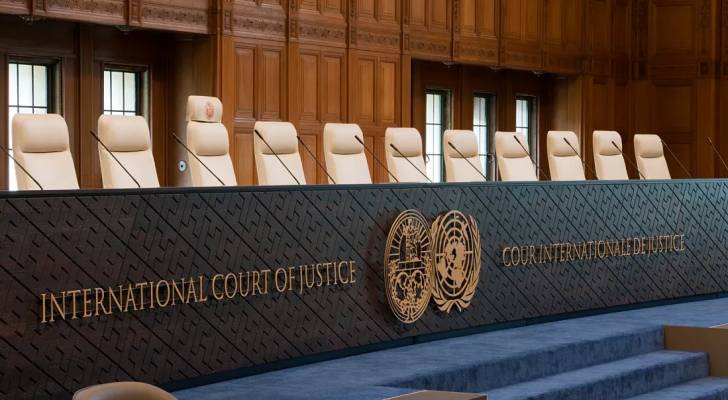ICJ begins hearings on 'Israel’s' humanitarian obligations in occupied Palestinian territory
The International Court of Justice (ICJ), the principal judicial organ of the United Nations, opened a significant series of public hearings today at the Peace Palace in The Hague, Netherlands, to examine 'Israel' obligations as an occupying power in the Palestinian territories.
Running from April 28 to May 2, 2025, these hearings address a request for an advisory opinion on 'Israel's' responsibilities toward the United Nations, international organizations, and third states in the Occupied Palestinian Territory (OPT), encompassing the West Bank, East Jerusalem, and Gaza.
The hearings stem from a December 2022 UN General Assembly resolution seeking clarity on the legal consequences of 'Israel's' policies in the OPT. This session follows the ICJ's historic July 19, 2024, advisory opinion, which declared 'Israel's' 57-year occupation unlawful, citing violations of international humanitarian law, human rights law, and the Palestinian people's right to self-determination.
The 2024 ruling called for 'Israel' to end its occupation, dismantle settlements, and provide reparations, though 'Israel' rejected the opinion as "fundamentally wrong" and insisted on resolving the conflict through direct negotiations.
Forty states and four international organizations, including the African Union, the Organization of Islamic Cooperation, the League of Arab States, and the State of Palestine, are participating in the oral proceedings.
The hearings are expected to focus on 'Israel's' obligations to ensure humanitarian aid access and protect civilian populations, particularly in light of ongoing conflicts and restrictions in Gaza and the West Bank.
The current proceedings are set against a backdrop of heightened international scrutiny. In 2024, the ICJ addressed related issues, including a South African case alleging genocide in Gaza and a ruling ordering 'Israel' to halt military operations in Rafah due to risks to civilians.
Human rights organizations, such as Amnesty International, have praised the ICJ's efforts to uphold Palestinian rights, while critics, including Israel and some Western allies, argue that the court overlooks 'Israel's' security concerns.
While the advisory opinion expected from these hearings will be non-binding, it carries significant moral and political weight. Experts suggest it could shape international policies, influence state actions—such as sanctions or trade restrictions—and bolster movements advocating for Palestinian rights.
The UN General Assembly and Security Council will play a critical role in determining how to implement the ICJ's findings, though previous rulings, such as the 2004 opinion on Israel's separation wall, have seen limited compliance.
As the hearings unfold, the international community watches closely. The outcome, expected in the coming months, may redefine the legal and political landscape of one of the world's most protracted conflicts.




